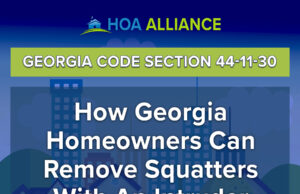Written by bkabritsor
If you help run a homeowner association (HOA), you could encounter a wide variety of challenges. From delinquent accounts to dealing with a dispute, filing paperwork and the enforcement of deed restrictions, many different issues can arise. Sometimes, unexpected hurdles come up. For example, if an HOA is trying to enforce a restrictive covenant, a homeowner facing enforcement actions could claim that a restriction has become abandoned in order to avoid penalties.
It is important to review factors that courts go over with respect to allegations of abandoned restrictions.
How courts decide if restrictions have become abandoned
According to the Texas State Law Library, there are different factors that courts go over when deciding if a restrictive covenant has become abandoned. For example, the court could look at how many unenforced violations have taken place with respect to the overall quantity of lots. The court could also look at how severe unenforced violations were in the past, as well as how much someone attempting to move forward with the enforcement of a restrictive covenant counted on the restriction when they bought property.
If the court comes to the conclusion that a restriction has become abandoned because an association was lax with respect to enforcement, enforcement could become impossible.
Handling allegations of abandonment
If your HOA currently faces allegations of the abandonment of restrictions while trying to pursue enforcement, it is imperative to carefully review the unique details of the case. Do everything in your power to safeguard the best interests of your homeowner association and secure a favorable end result in the courtroom.The post Looking at the abandonment of HOA restrictions first appeared on Gregg & Gregg, P.C..
Shared from Gregg & Gregg, P.C.











